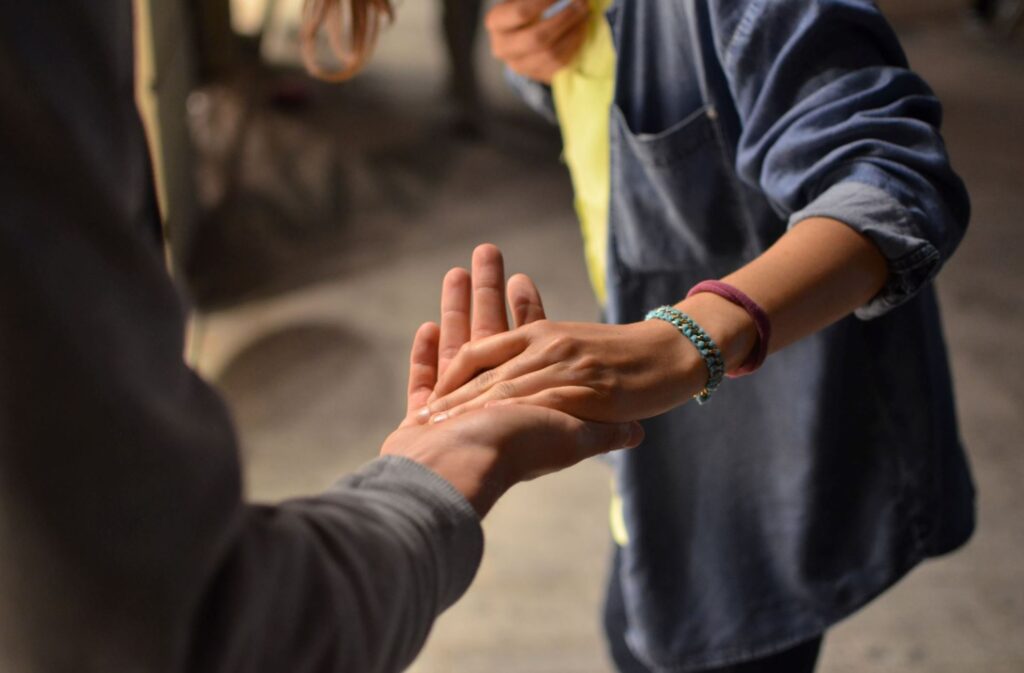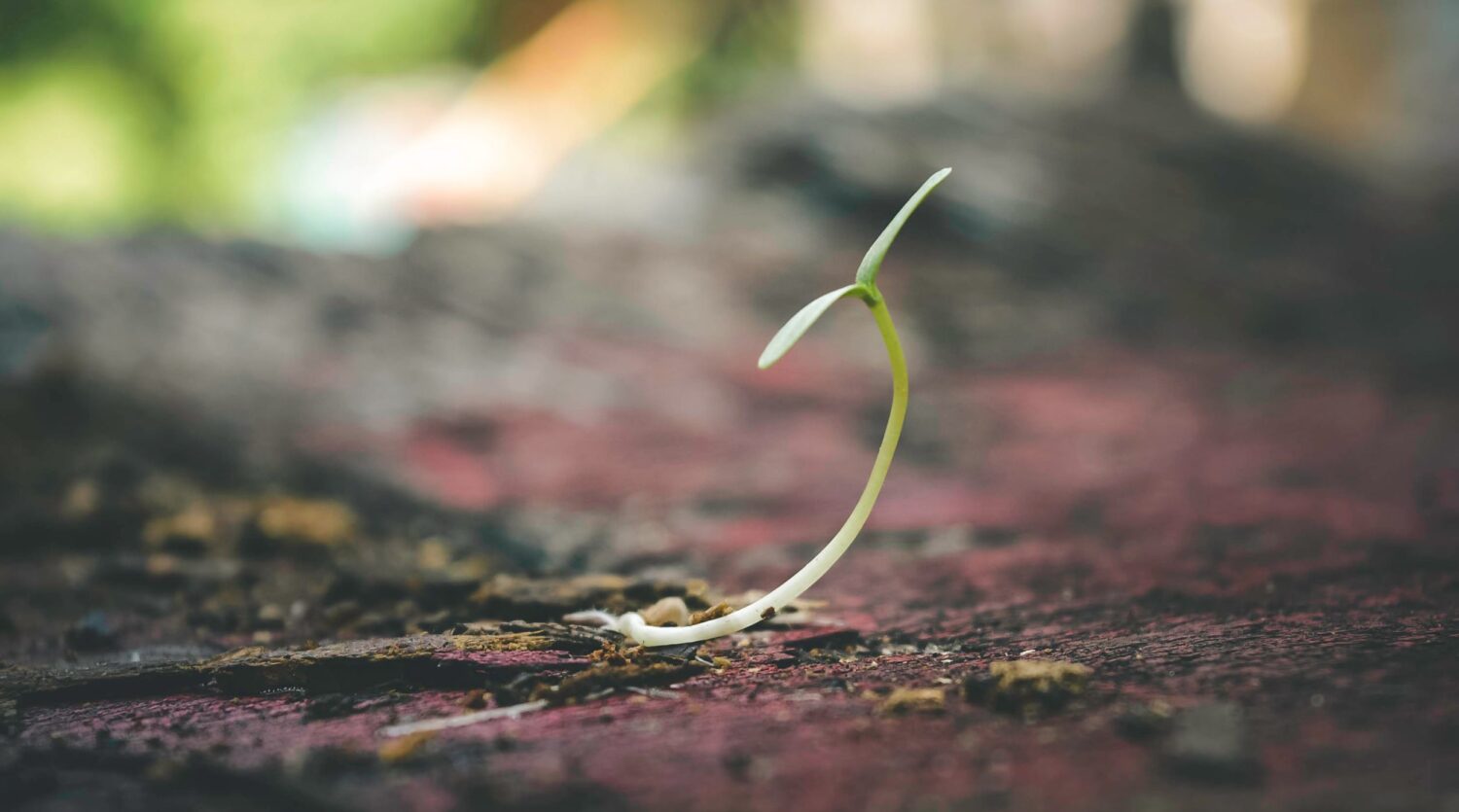Resilience is commonly thought of as the ability to recover quickly and ‘bounce back’ after stressful and challenging life events. However, don’t be fooled, this little word is far more complex than that.
Learning how to be more resilient, both at a personal and professional level, is a very important skill in today’s world as our lifestyles can be quite stressful. But how can we learn to be more resilient?
One thing is sure, there is no single strategy that can guarantee us resilience, but can changing our habits and experimenting a little with different approaches, lead us to develop a greater sense of happiness, well-being and a better change of bouncing back?
I think we can and I will bring you the evidence to show you just that!
What is resilience and what does it mean to be resilient?

As we just established, resilience is not just the ability to ‘bounce back’ after an adverse event. It’s about being flexible, pliant and at the same time incredibly strong enabling us to flex but also regain shape quickly. It’s also about being flexible and adaptable in our thinking, in our relationships, career, life choices and expectations.
When resilience was first studied in the 1950s, a team of psychologists looked at groups of people who had experienced troubled childhoods, but who also managed to thrive into adulthood. Dr Emmy Werner, a pioneer of this early research, in her studies found that about a third of children who had grown up in troubled families thrived into adulthood, while many others developed problems of their own. Werner called the group who thrived ‘vulnerable but invincible’. This research lead to more interesting questions, such as “what on hearth enabled these individuals to overcome not only the difficulties of their childhoods but also to go on to lead happy, healthy and productive lives in adulthood?”. Many aspects, later referred to as “protective factors” were then looked at. For example, their propensity to have a more affectionate and good-natured temperament, their intellectual capacities and their ability to bond with others and identify with good role models. The research was a breakthrough in demonstrating that resilience isn’t something we are born with. We can learn it and it happens in connection with others.
Resilience is a process rather than an end-state. It’s about thriving, not just surviving and it involves supportive relationships, not just individual effort. Again, it is also about having adaptive and flexible responses. We are not born with it and it’s not a superpower or feature just for the Gods and heroes!
What I like most about resilience is that it can surprise us. Sometimes we can hurt and crumble …some other times we can hurt, survive and thrive demonstrating that we are tougher than we thought we were.
Can we learn to become resilient?

Learning to become resilient is a complex but important skill to learn. Ironically, the difficulty is also a crucial part to its development, which is what psychologists call developing a sense of ‘self-efficacy’: a confidence in your ability to complete the task at hand.
Developing self-efficacy involves learning to focus our attention on the matter at hand while spotting and setting aside the internal voices of self-doubt.
Learning to trust yourself from experience is an essential part of self-efficacy. From time to time I like to look back at my personal achievements through difficult times as they are a reminder that I had in it me to go through with it. I look at the skills and knowledge I had to learn and the tools I had to equip myself with. I recognize the struggles and salute the way I overcame them. They are my scars but also my valuable learning lessons.
How is resilience developed and what are the skills needed?

As mentioned above, there is no single strategy and here are some valuable insights to help you with it.
Problem solving capabilities
The ability to creatively solve problems as they occur is an important element of being resilient and one of the most sought-after skills especially in the workplace. One very important lesson is to be flexible when approaching a problem as sometimes the problem we think needs solving isn’t the real problem after all. Becoming rigid and fixated on a specific way to tackle it, is only going to side track us!
The first step is to gather information in a non-bias way. To do this, it’s vital to look at it from different perspectives, which also means with empathy. Finally, it involves being open to different approaches and ways to reframe the problem. The ability to reframe or think differently about problems – often from the perspective of another – is a key part of building our resilience tool kit as it teaches us to engage with the aim to understand rather than allowing it to block our way forward.
It is also important to remember that Rome wasn’t built in a day! Complex problems take more than one go to be solved, which …again and ironically…. teach us resilience thru trial and error.
I often say that my weapon of choice is knowledge and that is because it truly weaponizes you! Learn from other people’s experiences! This isn’t about asking others to get quick answers to our questions, but it is rather watching, learning (and exploring) how other went about it. Talk to people, do your research and don’t be afraid to think out of the box.
As we will see shortly, resilience is also a social process. By connecting with others and feeling their support in times of stress and personal growth, helps us become more resilient.
Finally, listening is not a passive skill; it’s an active part that helps us practise openness to all the challenges life throws at us by developing an adaptable and resilient mindset.
Self-care:
- Mindfulness
Mindfulness isn’t about stopping our thoughts or being in a state of no thoughts, but rather about finding new ways of being with them. Through mindfulness we can focus on the present moment, while calmly acknowledging and accepting our feelings, thoughts, and even bodily sensations.
Mindfulness is essentially a form of self-care that relies on a variety of techniques to help us manage take care of ourselves in the midst of our everyday busyness. It is particularly difficult to practice because, when caught in a difficult spiral, we often feel that trying to relax or take good care of ourselves is nonsense as there is simply too much to do … which paradoxically is what is making us stressed and caught in a pickle!
By focusing on the rhythm of our breathing, on the rising and falling of our belly as we breathe and by drawing our attention to our bodily sensation, we allow ourselves to put distance between us and the constant commentary that goes on in your mind. This is what meditation teachers often tell their students: you are not your thoughts. Furthermore, we are especially not our thoughts when we are most negative and overly critical of ourselves because we don’t measure up the high expectations we often have of ourselves.
Mindfulness is also about acceptance and love. It’s about giving a break and showing kindness to ourselves and others.
It is strictly linked to resilience because it teaches us to pause and be with our thoughts in a more productive and non-critical way. It also enables us to become more aware of our body and its needs. For example, are we being kind to ourselves and allowing ourselves to find time to eat and sleep healthily? Is our body aching because we have been neglecting and subjugating it to many hours of manual hard work or many hours of sitting in front of a desk? Similarly, mindfulness helps us become more aware of our emotions and feelings, and this understanding is a valuable part of building resilience.

- Sleep
Sleep plays an important role in our physical health as it aids healing and repairing of our heart and blood vessels. Ongoing sleep deficiency is linked to an increased risk of heart disease, kidney disease, high blood pressure, diabetes, and stroke. It also brings us clarity. The expression “sleep over it” is no coincidence as sleeping helps to eliminates fuzzy and negative loophole thoughts and restoring clear thinking.
According to leading neuroscientist and ‘sleep expert’ Professor Matthew Walker, we’re experiencing a ‘catastrophic global sleep epidemic’ by saying that “human beings are the only species that deliberately deprive themselves of sleep for no apparent gain … Many people walk through their lives in an under slept state, not realising it.”
Walker, who runs one of the world’s leading sleep labs at the University of California, Berkeley, in his book “Why we sleep: The New Science of Sleep and Dreams” he talks about the effects it can have on us. He highlights the importance of sleeping seven to eight hours a night stressing that lack of sleep has a cumulative effect on our health, and that we can’t undo the damage by grabbing a few extra hours on the weekend. He strengthens this image by showing evidence that people who regularly miss sleep are at a much higher risk of diseases like Alzheimer’s disease, cancer, diabetes and heart disease. He also talks about the five phases of sleep and how each phase has different effects on our brains whether that be consolidating learning, transferring information from short-term memory to long-term or processing unusual or difficult experiences. Finally, he demystifies the belief that alcohol helps people sleep, by explaining that alcohol tends to repress REM – or dream – sleep which is one of the key ways that our minds process emotions and solve problems while we’re asleep.
From this, we gather that sleep is essential for our long-term physical resilience and for our emotional regulation by aiding our emotional reaction and decision making which are essential elements of being resilient.
Click here to read more about how to improve your sleeping patterns as advised by the US National Sleep Foundation.
Engaging with others
In the natural world we refer to an ecology when describing a self-sustained and mutually dependent system.
Resilience, turns out, is a bit like that! It relies on the engagement with others to ensure that we reinforce one another’s capacity for thriving.
Dr Michael Unger from Dalhousie University and his team at the Resilience Research Centre, talk about resilience with an ‘ecological’ approach according to which for people to become and remain resilient, their community and cultural context has to be taken into account. This is because, as for an ecosystem in nature, if one element is disrupted, it has consequences for all others.
Practicing compassion for self and others

Compassion gives us the ability to understand someone else’s situation allowing us to step outside of ourselves and see the circumstances of others. In the grand scheme, it’s one of the essential ingredients to make the world a more caring place.
By learning to be more compassionate towards ourselves, especially at times of failure, we also develop the ability to become more compassionate towards other which, in turn, will make us happier and more resilient in our own lives.
Numerous studies have shown a strong link between being more compassionate and having a better health, happiness and even a longer life. Furthermore, it has a positive effect on both us and on other people.
The first step is to start at home, which in this context means learning to be more compassionate towards ourselves, especially when we fail under the hand of our high expectations. Click here for some tips.
As we have seen resilience is also a social process as we rely on others for support and compassion. We learn to give support but also to ask for support making us more resilient.
Seeking meaning & purpose
Finding purpose in our life is the cornerstone of a healthy and happy existence. At Wellness and Purpose, we value this so much we have even included it in our name! This is both in the sense of personal purpose and worthiness as well as in terms of forming positive relationships.
Evidence shows us that people with a clear sense of purpose tend to live longer, show better cognitive skills with ageing, have lower rates of depression and are at lower risk of dementia or Alzheimer’s disease.
It appears, though, that the perception of purpose is very much relative to the individual. Interestingly, the sense that our efforts are having a positive impact on other people’s lives is a great pusher behind fuelling our sense of purpose.
In a study by Amy Wrzesniewski from the Yale School of Management found that some people actively ‘craft’ their job to find additional meaning. For example, Wrzesniewski noted that some hospital workers who cleaned patient rooms found their job meaningless and difficult, while others found it meaningful and fulfilling. Wrzesniewski was intrigued with this and he observed that the group that found it meaningful tended to focus on the interactions they had with the patients actively ‘crafting’ their job into extra little things such as, for example, doing an extra run of checks for the patients who didn’t have many visitors. In so doing these individuals carefully crafted their job to give it more meaning, fulfilment and purpose!
Having purpose makes it easier to bounce back in challenging times by providing perspective, confidence, stability and the strength to see things through. It’s much harder to be defeated when we are passionate and purposeful about our goals and journeys.
A recap of the 4 resilience skills and tailoring your own resilience plan

As you may have gathered, learning to become more resilient, is a much-needed skill. The good news is that it’s a skill and not a superpower we are born with. Also, resilience, relies on our own individual values, capacities, experiences and surrounding environment or ‘ecologies’ as Dr Michael Unger calls it.
It’s important to understand that resilience is not just about bouncing-back or ploughing thru difficulties like a charging bull, but about being flexible and learning to thrive.
You can start working on your own resilience plan by:
- understanding the importance of self-care and compassion towards yourself and others,
- appreciating the need for a supportive ecology of friends, family and colleagues that supports its individuals to thrive through engagement and through giving and receiving help,
- realizing the importance of crafting and deliberately injecting purpose in your life,
- accepting that resilience is a learning process that requires experimenting and going through a multitude of trials and errors and that it requires researching the strengths, skills, experiences and values that you need to build on.
One thing is sure. Learning to be resilience is an incredibly valuable skill to have!



